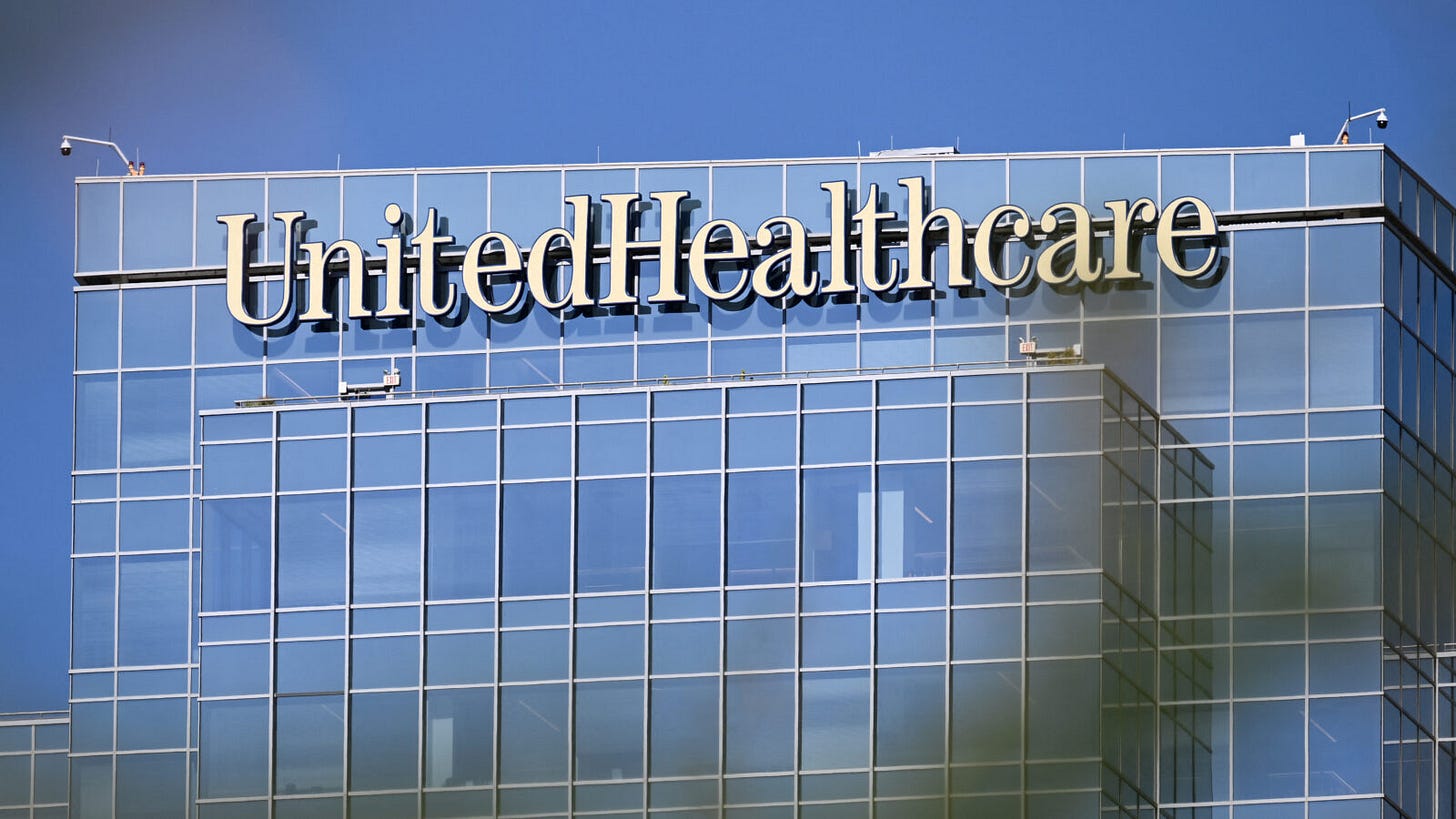UnitedHealth got a docuseries removed from Amazon and Vimeo
+ DeportationTok, the Gen Z stare, stone carving robots, Jack Dorsey's new app, Wimbledon's AI influencer, Kick streamer turf war, Labubu rave, Freedom Cities, how incel language shaped the internet
The journalist David Enrich has an excellent piece out in The New York Times about UnitedHealth’s legal quest to silence speech criticizing the company. Since the murder of executive Brian Thompson last year, UnitedHealth has invoked Thompson’s death to try to get critical coverage of the company removed or censored from news outlets, on streaming services, and across social media.
Amazon and Vimeo both removed a docuseries that harshly criticized the U.S. health care industry after pressure from UnitedHealth. The Guardian also postponed publishing an investigation after UnitedHealth sued over a previous article. In the past few months alone, UnitedHealth has targeted traditional journalists and news outlets, a prominent investor, a Texas doctor, activists and more.
From David’s article:
In early January, Dr. Elisabeth Potter, a plastic surgeon in Austin, Texas, posted a self-made video on TikTok and Instagram that described how she had interrupted breast-reconstruction surgery to respond to a phone call from UnitedHealth about whether the insurer would cover a patient’s stay at a hospital. The call had come to the operating room’s phone line, leading her to believe it was urgent.
“Insurance is out of control,” Dr. Potter said in the video. “I have no other words.”
The short video was viewed millions of times and attracted hundreds of thousands of “likes” on social media.
About a week later, Dr. Potter received a six-page letter from the law firm Clare Locke, which UnitedHealth had retained as “defamation counsel.” The letter claimed that she had distorted the circumstances of the phone call and that her video was libelous. It noted that some commenters were responding to her posts by celebrating Mr. Thompson’s murder. The letter demanded that she retract her video and apologize.
It’s notable that UnitedHealth has retained veteran media lawyers Clare Locke to wage their legal crusade. Clare Locke has been on the forefront of a years-long effort to dismantle press freedom. The firm has sought to get landmark Supreme Court ruling, New York Times Co. v. Sullivan, which forces public officials to prove that defamatory statements were made with “actual malice,” in order to win a libel suit, overturned. David’s excellent book Murder the Truth documents these efforts in great detail (and it’s a great summer read!).
The UnitedHealth situation shows once again why we all have to do as much as we possibly can to fight for free speech, especially online. While big news organizations like The Guardian can weather defamation lawsuits, content creators and independent journalists cannot.
For last week’s episode of my “Free Speech Friday” YouTube series I spoke with Meredith Rose at Public Knowledge, a non profit promoting freedom of expression, about how it’s not just defamation independent creators need to worry about, copyright lawsuits are now also being wielded by large creators against small creators to silence speech and block criticism.


